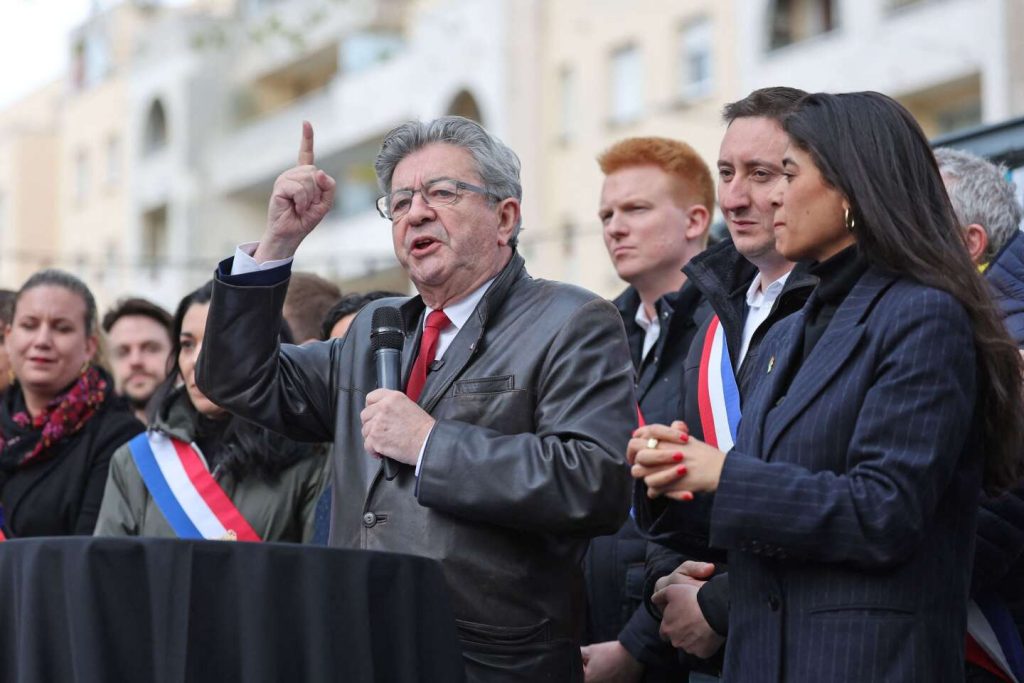Jean-Luc Mélenchon gave a speech alongside French-Palestinian lawyer and LFI candidate for the upcoming European elections, Rima Hassan, during a mobilization in Lille after their conference on Palestine was canceled twice on April 18, 2024. Mélenchon announced that he would hold a conference at Sciences Po Paris on Monday, April 22 at 7:30 pm. He was invited by the Young Insoumis Sciences Po Paris to present his new book “Faites mieux! Vers la Révolution citoyenne”. The event was scheduled to take place in the main amphitheater of the school. This event was part of his ongoing university tour to discuss the situation in the Middle East.
The founder of the radical left movement, who has made Gaza a central theme in his party’s campaign for the June European elections, had his conference at the University of Lille canceled last week. The university cited the escalating tensions in the Middle East after Iran’s attack on Israel as the reason for the cancellation. Mélenchon criticized the university president, calling the cancellation shameful and accusing those responsible of being unable to defend freedom of speech. A planned relocation of the conference to a private venue was also canceled by the prefecture, leading to a public rally in Lille organized by LFI in response to the double cancellation.
During the rally, Mélenchon made controversial remarks comparing the university president to a Nazi war criminal. He referenced Adolf Eichmann, who justified his actions by claiming he was following the law of his country. Mélenchon defended his statements by citing a book by philosopher Hannah Arendt to explain that the university president was promoting evil. Mélenchon’s remarks drew criticism from various political figures, including the leader of the Communist Party, who stated that Mélenchon’s comments were indefensible and discredited him.
Sciences Po Paris had previously faced incidents related to the conflict in Gaza when around three hundred students occupied an amphitheater in protest against the war and colonization in Palestine. An incident involving a student from the Union of Jewish Students of France (UEJF) led to accusations of anti-Semitic remarks against the organizers. The incident sparked political controversy and resulted in a visit by the Prime Minister and Minister of Higher Education to address the issue of anti-Semitism on campus. Mélenchon’s conferences at other universities had also faced cancellations in recent months due to various reasons.
The situation at Sciences Po Paris highlighted the ongoing tensions surrounding discussions on the Israel-Palestine conflict in academic settings. The cancellations of events and the controversies surrounding debates on the Middle East reflect the challenges faced by politicians and institutions in navigating sensitive issues. These incidents not only impact freedom of speech but also raise questions about the boundaries of political discourse and the responsibilities of universities in fostering open dialogue on contentious topics. The turmoil at Sciences Po Paris underscores the complexities of addressing anti-Semitism and other forms of discrimination in academic environments.















